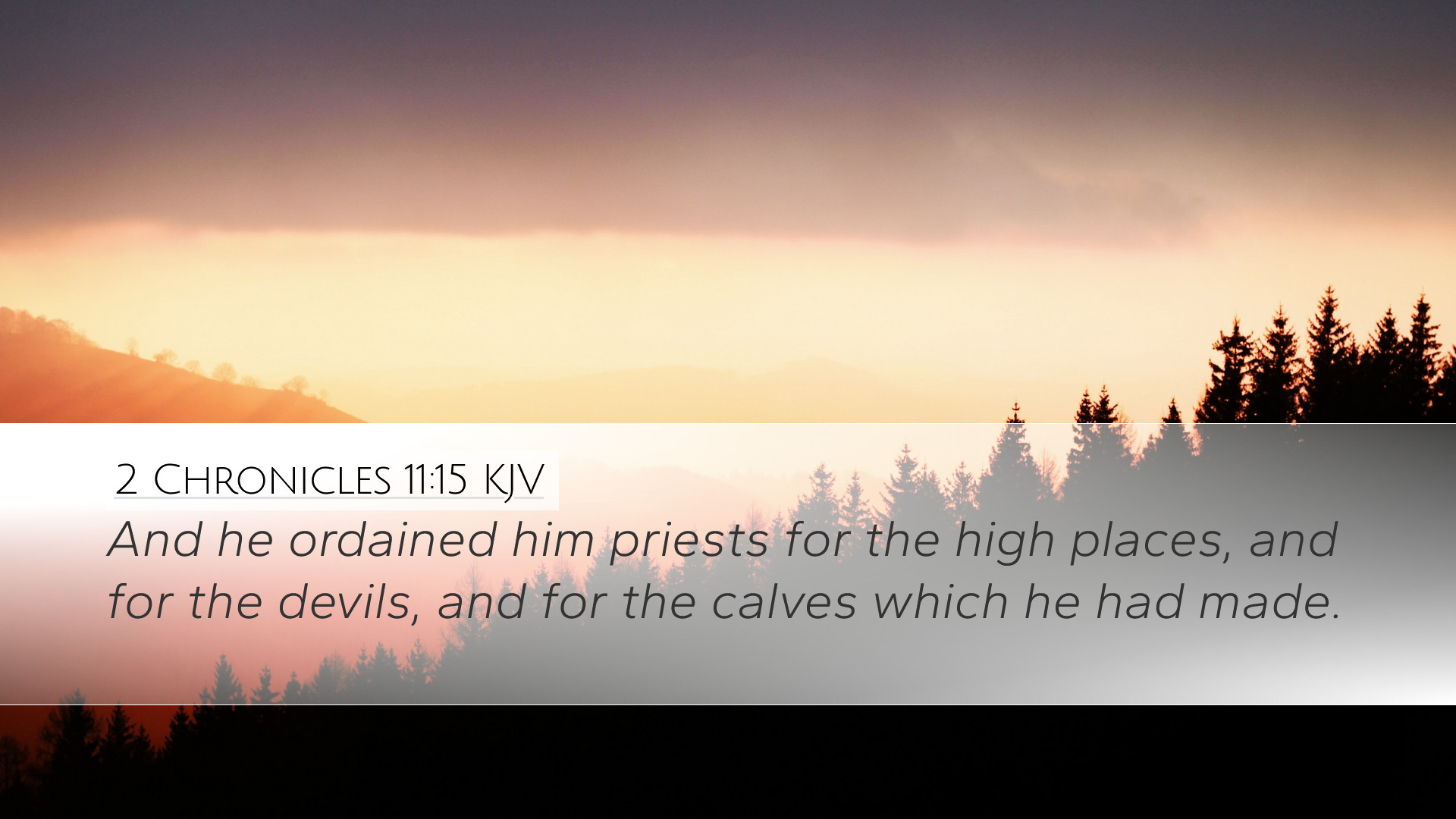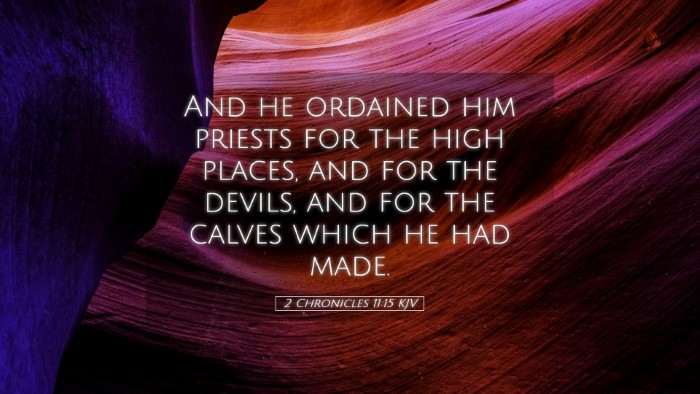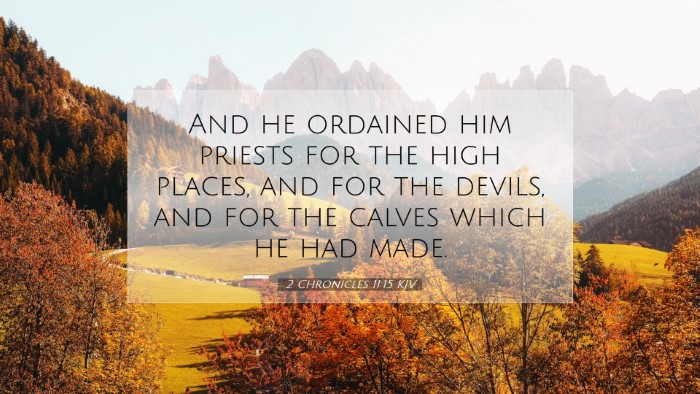Commentary on 2 Chronicles 11:15
Verse: 2 Chronicles 11:15 (NIV) - "He appointed his own priests for the high places and for the goat idols and the calves he had made."
This verse presents a significant moment in the history of Israel's divided kingdom, highlighting the actions of King Jeroboam in establishing a new religious order in the northern tribes. It specifically addresses the creation of an alternative priesthood to maintain the worship of golden calves, a deviation from the established worship in Jerusalem. The implications of these actions resonate throughout biblical history and provide rich material for theological reflection.
Contextual Overview
In the previous chapters, the kingdom has divided into two: Israel in the north, under Jeroboam, and Judah in the south, under Rehoboam. Jeroboam, fearing the loss of his kingdom if his subjects traveled to Jerusalem for worship, devised a plan to establish his own sacred sites.
Theological Implications
Jeroboam's choice to create his own system of worship can be seen as a rebuff to God's appointed order. The act of appointing priests from the laity, rather than from the line of Levi, illustrates a fundamental break from the covenantal structure ordained by God. As Adam Clarke describes, “This was not only a violation of the divine appointment, but it led the people into idolatry.”
-
Idolatry:
The golden calves symbolize a rejection of true worship. As Matthew Henry notes, “They thought to find a substitute for God, and in doing so, they substituted their own ambitions for divine will.”
-
Leadership Influence:
The verse reveals how influential leadership can steer a nation towards spiritual decay. The priests chosen by Jeroboam were not consecrated according to the Levitical tradition, showcasing a departure from God’s law. Albert Barnes emphasizes this by stating, “The introduction of unauthorized forms of worship invariably leads the people away from the true and living God.”
-
Consequences of Apostasy:
This verse sets the stage for the consequences that followed. Like a spiritual cancer, the seeds of idolatry shall grow and affect future generations. Jeroboam’s actions would lead to a legacy of sin that would plague the nation of Israel until its eventual conquest and exile.
Application for Today
For pastors, theologians, and scholars, this verse challenges us to consider the integrity of worship and the importance of following divine instruction in practice. The act of creating one's own religious customs outside of biblical parameters serves as a warning against the desire to accommodate societal trends that may compromise truth.
-
Caution in Leadership:
Leaders are called to adhere strictly to the Scriptures. The temptation to 'update' or 'modernize' worship practices must be weighed against biblical truth. Henry comments, “All innovations in religious worship have a tendency to lead people away from the true God.”
-
Restoration of True Worship:
There exists a necessity for the church today to return to the foundations of faith as laid out in the Scriptures, akin to the call to return made during the time of the reformers. Clarke urges leaders to guide their congregations away from distractions and towards pure, scriptural worship.
-
Legacy of Influence:
The implications of our worship influence not only our communities but future generations as well. This underscores a need for careful examination of worship practices to ensure they align with God’s revelation, as misdirection today can lead to spiritual decay tomorrow.
Conclusion
In summary, 2 Chronicles 11:15 encapsulates a critical moment of apostasy in Israel's history, drawn from an understanding of leadership, worship, and the consequences of deviating from God's ordained path. As those who study the Scriptures, it is our responsibility to heed these lessons, ensuring that our practices reflect the holiness and standards set forth by God. The careless appointment by Jeroboam serves as a reminder that true worship cannot be fabricated according to human desire; it must align with the divine will.


